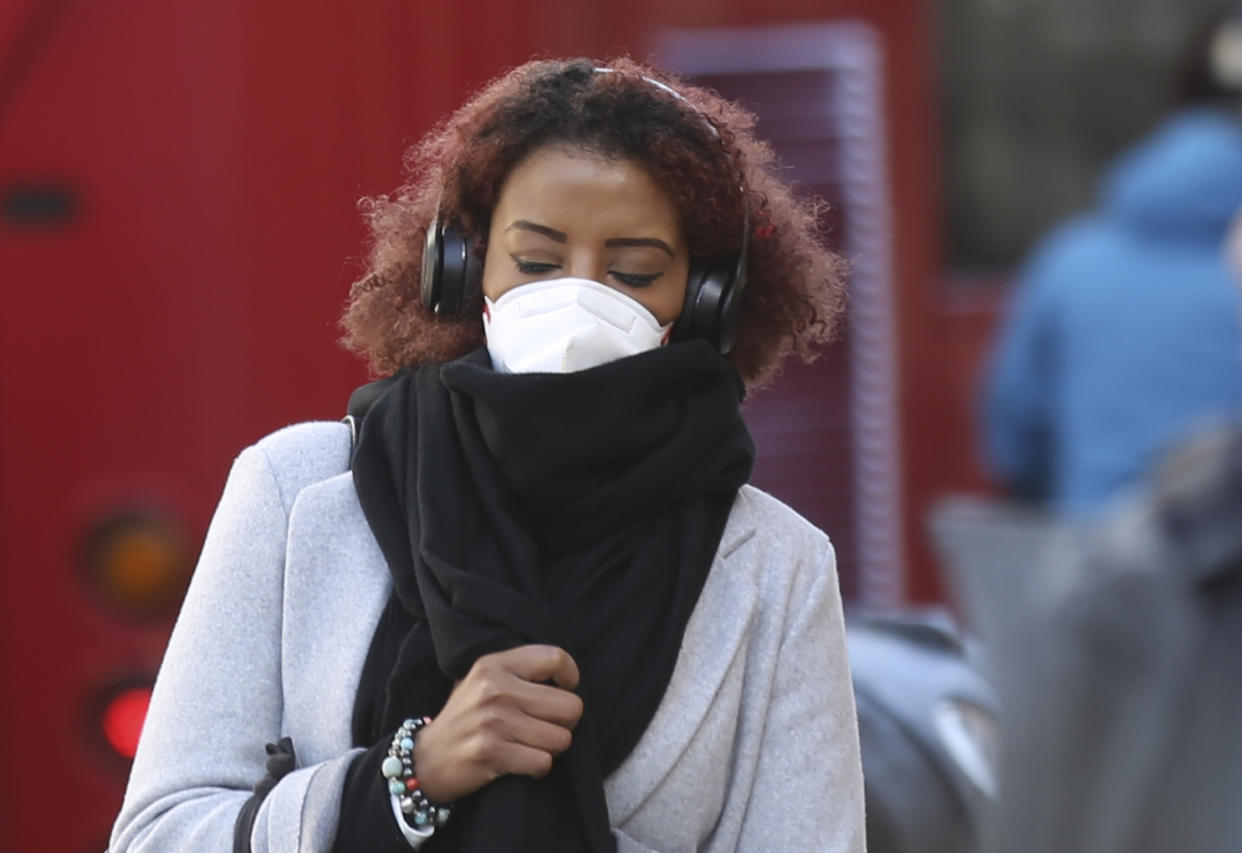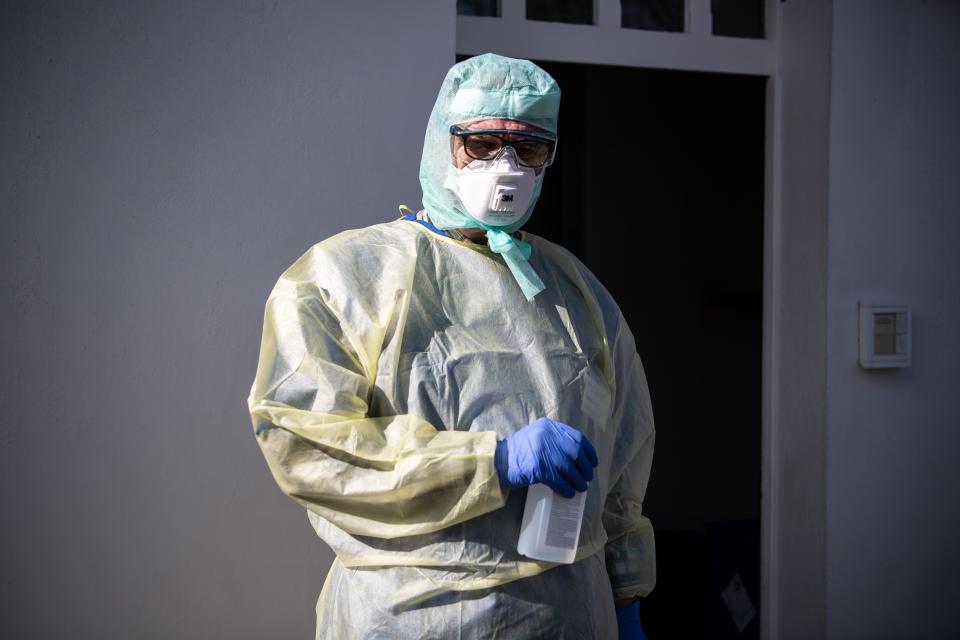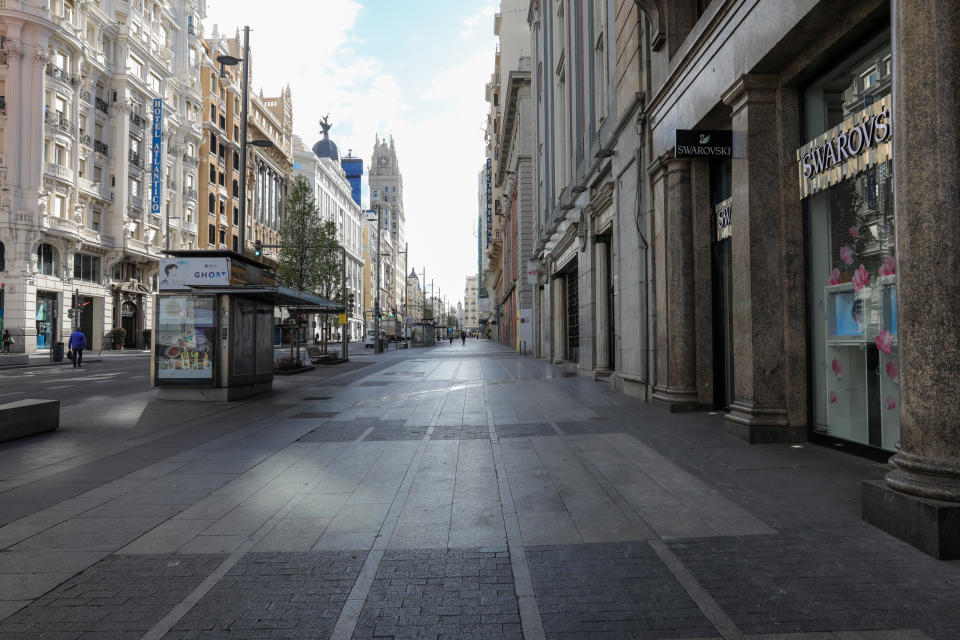Coronavirus response: UK vs France vs Germany vs Spain

The government is reportedly set to ban mass gatherings and encourage elderly people to stay indoors as part of plans to delay the spread of coronavirus.
Boris Johnson is due to hold a Downing Street Cobra meeting followed by a press conference in which he will update the nation on the government’s plans.
The reported measures – so far resisted by the government’s top scientists who have said they need to be introduced at the right time to avoid public fatigue – would see the UK move in line with its European neighbours, many of which have already imposed heavy restrictions on people and businesses.
Here is how France, Germany and Spain have responded so far.
France
Last week, France banned all public gatherings of more than 1,000 people.
It also issued safety guidelines. However, because they were ignored by some members of the public, the government introduced new legislation at the weekend ordering non-essential public buildings to be closed.
The legislation, translated to English, reads: “Considering that the observance of the rules of distance being particularly difficult within certain establishments open to the public, it is necessary to close those which are not essential to the life of the nation such as cinemas, bars or discotheques [and] shops with the exception of those of an essential nature such as food shops, pharmacies, banks, service stations or press distribution.”
Latest coronavirus news, updates and advice
Live: Follow all the latest updates from the UK and around the world
Fact-checker: The number of Covid-19 cases in your local area
Explained: Symptoms, latest advice and how it compares to the flu
Other non-essential places to shut include libraries, leisure centres, museums and nursery schools.
The French government said the closures must be observed “in all circumstances”.
Schools were also shut on Monday until further notice.
As of 3.33am on Monday, Johns Hopkins University’s Center for Systems Science and Engineering said there had been 5,437 coronavirus cases in France, with 127 deaths.
Germany

On Monday, Germany imposed temporary controls at its borders with France, Switzerland, Austria, Luxembourg and Denmark. The borders are usually check-free.
People who commute across the border to work are still allowed to cross, as are lorries carrying goods.
However, people “without a valid reason to travel” will not be allowed across. This rules out people being able to cross the border into Germany to, for example, go shopping.
Read more: Dutch queue up to stockpile cannabis ahead of coronavirus restrictions
Large gatherings have also been banned nationwide, while all schools were also shut on Monday.
As of 3.33am on Monday, Johns Hopkins University’s Center for Systems Science and Engineering said there had been 5,813 coronavirus cases in the country, with 13 deaths.
Spain
On Saturday evening, Spain followed Italy by imposing a national shutdown.
Lasting for two weeks, people are only allowed to leave their homes for specific purposes such as buying food or medicine, going to work or caring for young or elderly people.

As in France, non-essential buildings such as restaurants and retail shops have been closed, alongside schools and universities. Essential shops will remain open.
The measures were introduced after prime minister Pedro Sánchez's wife, Begoña Gómez, tested positive for coronavirus.
As of 3.33am on Monday, Johns Hopkins University’s Center for Systems Science and Engineering said there had been 7,844 coronavirus cases in the country, with 292 deaths.

 Yahoo News
Yahoo News 

